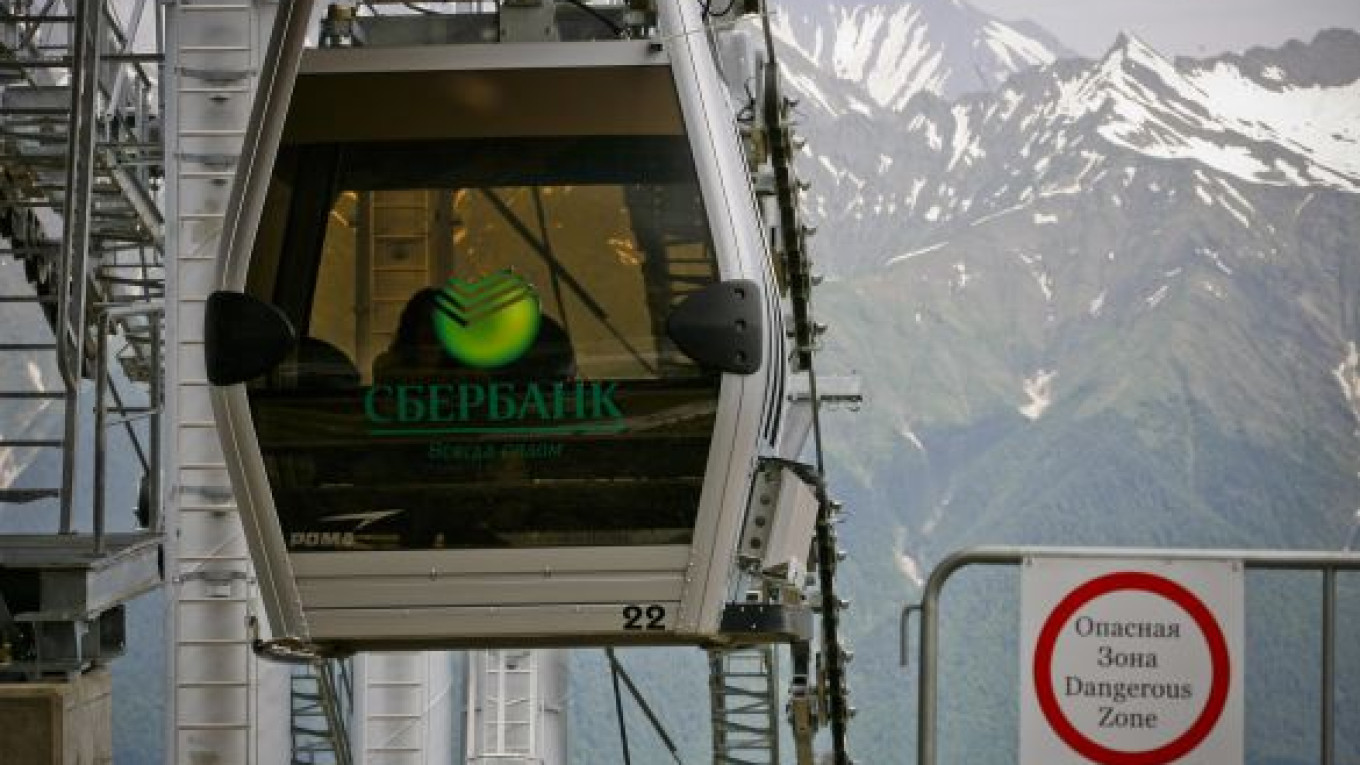*Editor's Note Appended
Two and a half years before its start, the 2014 Sochi Winter Olympics is already the most successful in the history of the games at deriving income from national sponsors, beating the Beijing Summer Olympics' record.
The games have taken in more than $1.2 billion, Olympic organizing committee chairman Dmitry Chernyshenko announced at a session in Sochi.
On Saturday, the committee signed a sponsorship agreement with Russian Buses (part of GAZ) and Scania Rus, as well as with recruiting agencies Adecco Group, EXECT Business Training and Kelly Services.
Services are to be provided under the contract in addition to payment for the right to use the Olympic symbol and Sochi 2014 logo. Russian Buses and Scania Rus will provide buses, and Adecco Group will select temporary personnel to work at the games.
The committee has an agreement with one more company, the identity of which is not being revealed, a committee representative said. A contract is expected to be signed before year-end and is considered in the calculation of the $1.2 billion sum.
National sponsors make contracts with the organizing committee through competitions and are the committee's main source of income, since income from ticket sales is relatively slight. The Winter Olympics is less popular than the summer games, since it is shorter and less colorful. The ticket sales record for Winter Olympics was set in Salt Lake City at $154 million.
Global sponsors, such as Samsung, Coca Cola and Visa, sign contracts with the International Olympics Committee for a series of games.
With the latest contracts, the number of partners for the 2014 Olympics amounts to 18. Eight sponsors account for almost $1 billion. The largest sponsor is Rosneft, which paid $180 million, followed by MegaFon and at $130 million each. Gazprom declined to become a sponsor.
The Sochi committee's success is a combination of marketing and administrative resources.
A source at Sberbank said the bank spent a long time in negotiations with the organizing committee because it was not clear what benefit the bank would receive from sponsorship. In the end, it became a general sponsor of the games because the country's leadership wanted to see the national bank in that role.
An employee of one of the games' main partners said: "We received rather unclear rights to the use of the Olympic symbol, but they are asking us to pay for many specific marketing ideas and to participate in events."
A representative of a third-level sponsor — one that has paid less than $10 million ?€” was quite satisfied, however. Being mentioned as a sponsor in conversations with officials gave the company a competitive edge, he said.
Due to a translation error, this story originally misidentified Tatneft as a sponsor of the 2014 Winter Olympics. The company should have been Rostelecom.
A Message from The Moscow Times:
Dear readers,
We are facing unprecedented challenges. Russia's Prosecutor General's Office has designated The Moscow Times as an "undesirable" organization, criminalizing our work and putting our staff at risk of prosecution. This follows our earlier unjust labeling as a "foreign agent."
These actions are direct attempts to silence independent journalism in Russia. The authorities claim our work "discredits the decisions of the Russian leadership." We see things differently: we strive to provide accurate, unbiased reporting on Russia.
We, the journalists of The Moscow Times, refuse to be silenced. But to continue our work, we need your help.
Your support, no matter how small, makes a world of difference. If you can, please support us monthly starting from just $2. It's quick to set up, and every contribution makes a significant impact.
By supporting The Moscow Times, you're defending open, independent journalism in the face of repression. Thank you for standing with us.
Remind me later.


